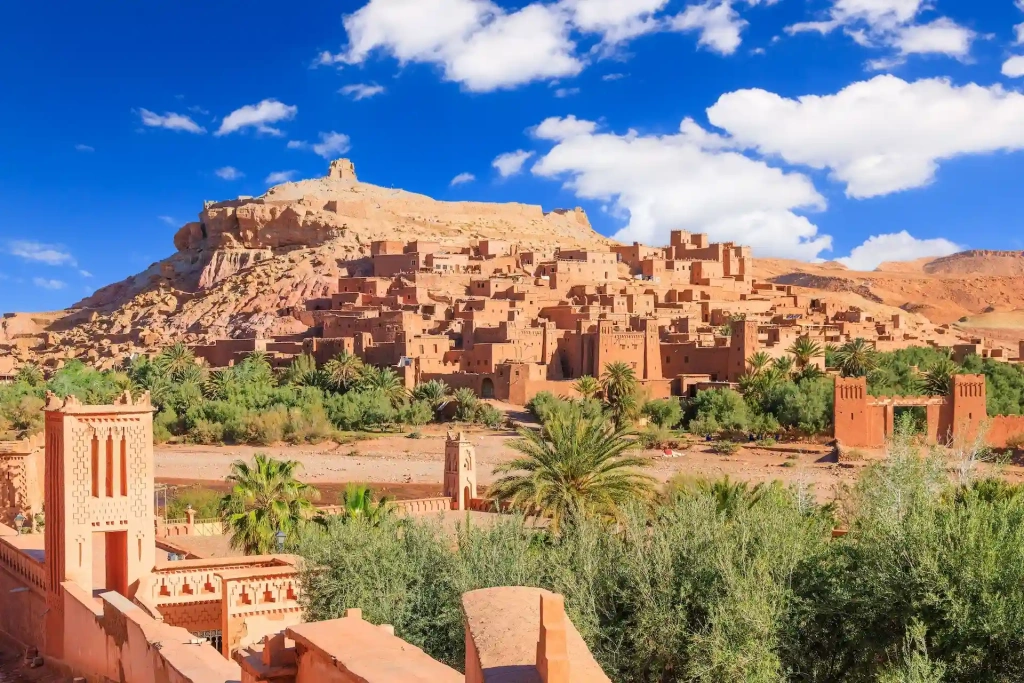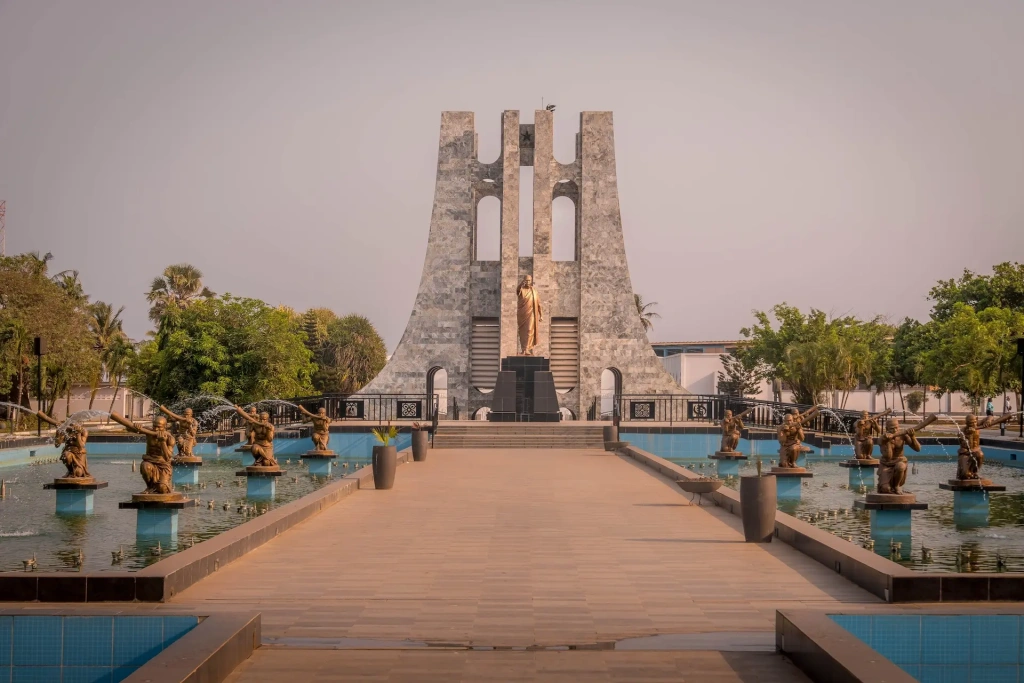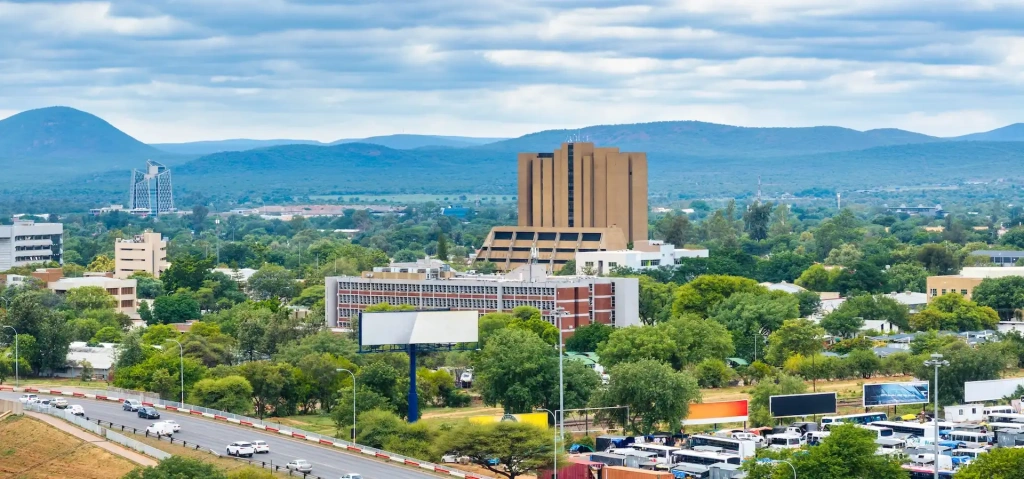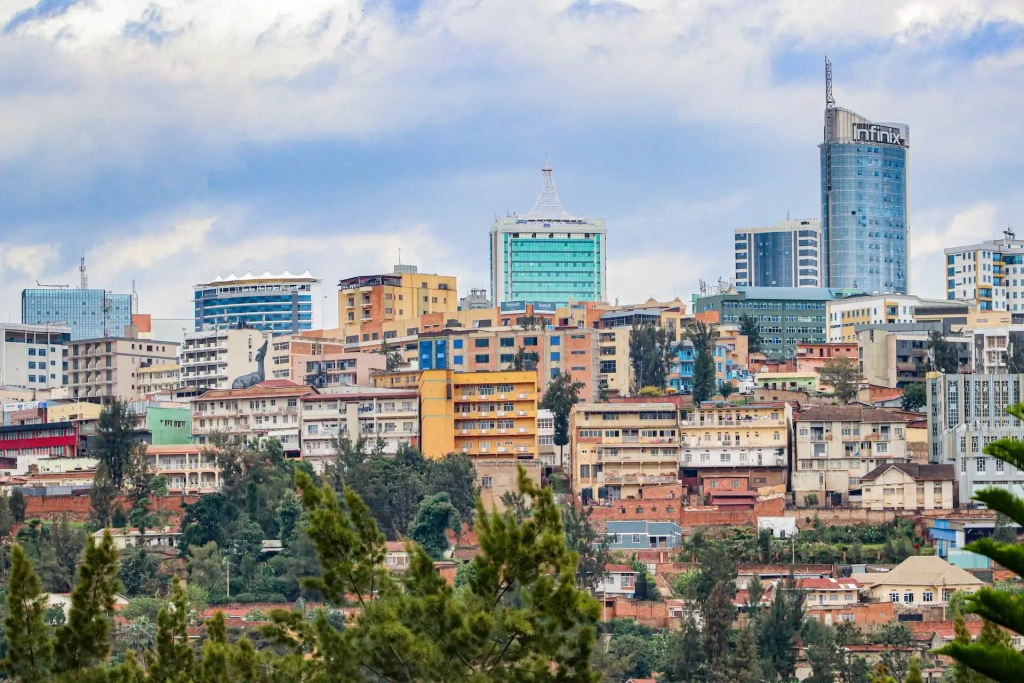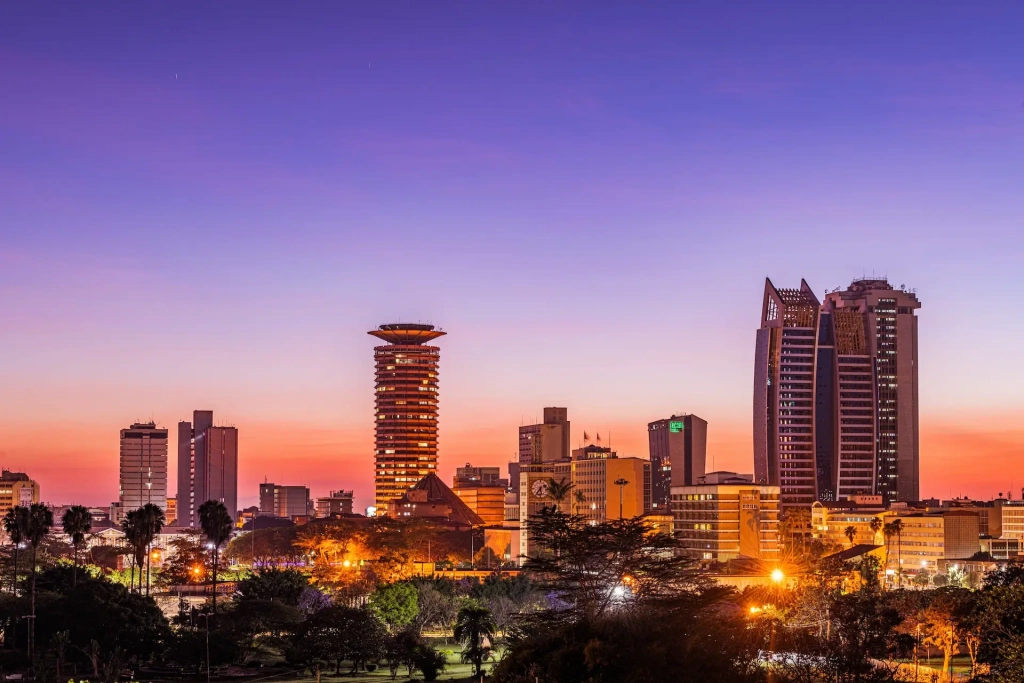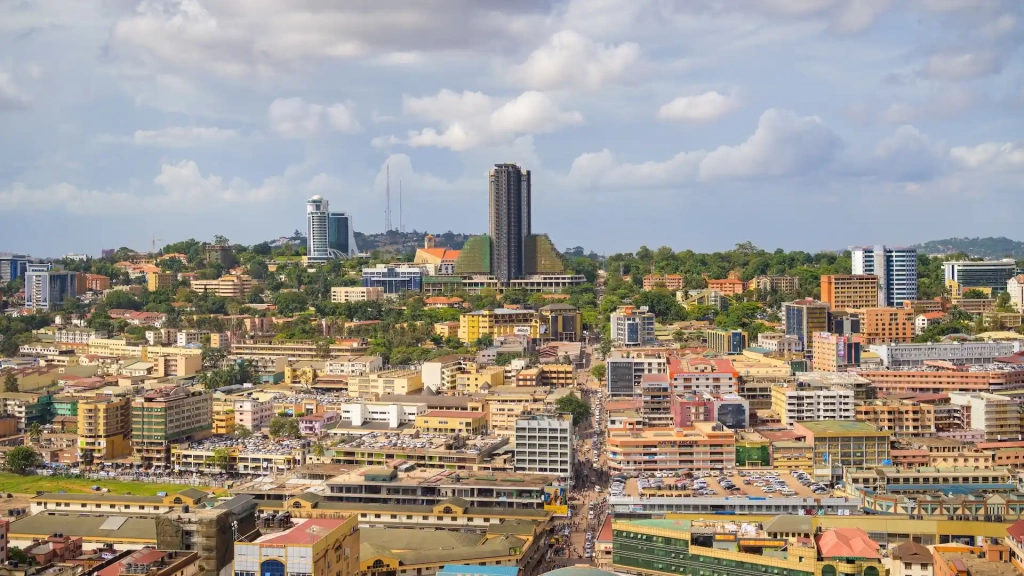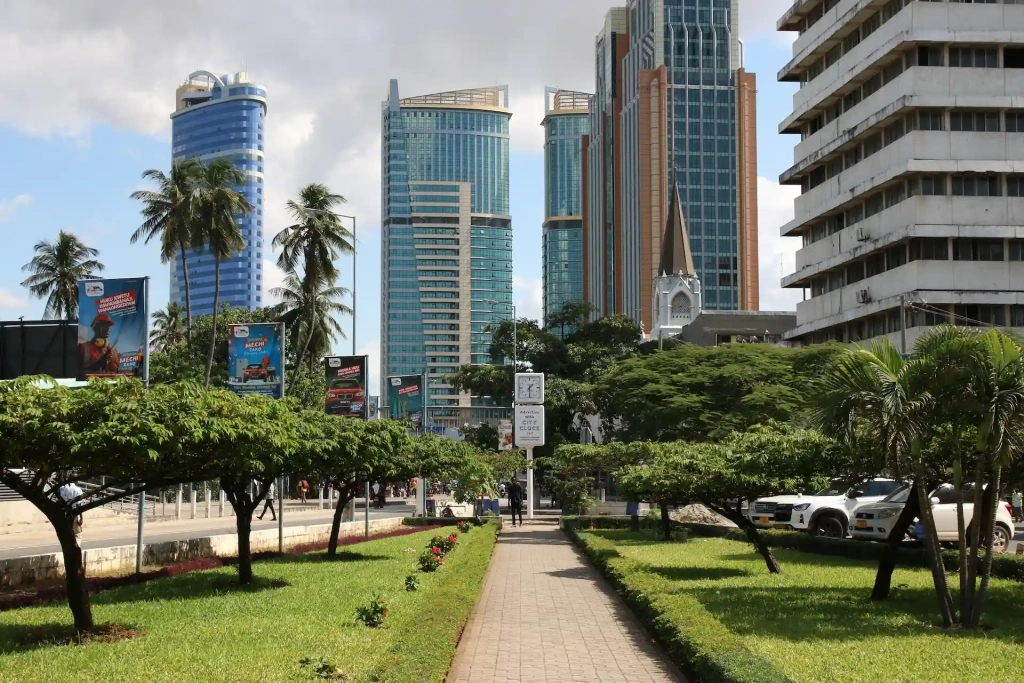African countries surprise not only with their wildlife and unique culture. Many of them, having emerged from years of war and political conflict, are now demonstrating rapid economic growth in various fields, such as green energy, the digital economy, and even space exploration. Altezza Travel highlights the most promising nations that not only preserve the heritage of the past but also actively strive for the future, shaping a new image of the African continent.
Morocco
- Capital: Rabat
- Population: 39.6 million
Located in North Africa, Morocco has always been a popular destination for travelers. According to the tourism industry, in 2024 Morocco became the most visited African country, surpassing Egypt with 17.4 million visitors. Beyond its beautiful beaches, travelers are drawn to Roman-era architecture, the world’s oldest university — Al-Karaouine in Fez, and the 19th-century Bahia Palace in Marrakech.
The country is considered safe. According to the international ranking by Numbeo, Morocco’s crime rate is comparable to Sweden’s. The Global Peace Index, published by the Institute for Economics and Peace, ranks Morocco ahead of the USA, China, India, and many other countries.
The government has ambitious plans to enter the world’s top 15 most visited countries — and this looks achievable. In 2024, international airlines launched 120 new flights to Morocco. New global brands are also arriving, including the Four Seasons hotel chain and Nobu restaurants, co-owned by Hollywood actor Robert De Niro.
In 2030, Morocco will co-host the FIFA World Cup with Spain and Portugal. According to Business Insider Africa, $4.2 billion will be invested in building new infrastructure for the event.
The UN Tourism reports that over the past decade, the country has invested $2.2 billion in developing tourism infrastructure. As for foreign direct investment (FDI), international investors have invested approximately $3.5 billion in various sectors over the past five years.
All this gives new momentum to the economy, which the World Bank describes as resilient. In the current year, GDP growth is expected to reach 4.4%.
Few African countries have business leaders featured on the Forbes list. In 2025, Morocco has three: Anas Sefrioui, Aziz Akhannouch, and Othman Benjelloun, whose combined wealth totals nearly $5 billion.
Egypt
- Capital: Cairo
- Population: 114.4 million
The land of pyramids and pharaohs’ tombs continues to attract millions of tourists. In 2024, Egypt’s tourism industry broke all records, contributing over $20 billion to the economy. According to the World Travel and Tourism Council (WTTC), this represents 8.5% of the country’s GDP.
Beyond its resorts, Egypt is also becoming a hub for medical tourism. Modern clinics with highly qualified staff, offering treatments at costs several times lower than in the EU, are popular among Europeans. In 2022, the European analytics agency Insights valued Egypt’s medical tourism market at $14.8 billion, with projections that it could reach $154.3 billion by 2030.
Despite the political tensions in the Middle East, Egypt is generally considered a safe destination to visit, with crime rates lower than those in many European countries. While the Institute for Economics and Peace does not rank Cairo among the highest in peace indicators, Egypt still ranks ahead of the United States, the world’s largest economy.
The government is preserving ancient monuments while also building modern infrastructure. Construction of a new administrative capital, NAC, is nearing completion. It will house government offices, embassies, museums, and a new National Library. The $58 billion city is designed for 6.5 million residents and will strengthen Egypt’s role in the regional real estate market.
Ghana
- Capital: Accra
- Population: 35.1 million
Located in West Africa, peaceful and stable Ghana contrasts with neighboring Burkina Faso, which has faced multiple coups. In the UN’s Global Report on Human Security and Development, Ghana ranks among the leaders.
The IMF highlights strong economic indicators: in 2024, GDP grew by 5.7% — nearly 1.5 times higher than in 2023. Growth was driven by services (6.1%), agriculture (2.8%), and mining (7.1%).
The government plans to strengthen mining regulations to improve local living standards. According to Reuters, Ghana intends to reduce the duration of licenses granted to foreign companies, ensuring that more revenue benefits local communities.
“This will streamline and regularise the system of tax payments, and consequently will generate revenue for economic development”, Kester Ken Klomegah, a Ghana native and a writer for the Modern Diplomacy magazine.
He believes such measures will boost production and significantly contribute to the national industry.
In 2024, Ghana became one of the most popular destinations in West Africa, attracting over 1 million foreign tourists. In terms of safety, Ghana ranks alongside Canada in the crime index.
Botswana
- Capital: Gaborone
- Population: 2.6 million
Bordering South Africa, Botswana is known to many travelers for the Kalahari Desert, which covers 70% of its territory. This is the country’s main tourist brand and a popular safari destination.
However, leading economists also highlight Botswana’s business success. As noted by Harvard International Review, the country’s pragmatic policies have driven strong growth and resulted in one of the highest GDP per capita rates in Africa.
Since the mid-1990s, Botswana’s economy has expanded through reforms. In 2024, the World Bank approved a $88 million loan for renewable energy development, aiming to increase its share to 30%.
According to Transparency International, Botswana is among the African nations with the lowest levels of corruption. In the Global Peace Index, it ranks 43rd, ahead of Greece, the USA, France, and many others.
Rwanda
- Capital: Kigali
- Population: 14.6 million
In the 1990s, Rwanda made global headlines due to the genocide of the Tutsi people, in which more than 800,000 lives were lost. Years later, peace was restored, allowing the country to recover.
This stability has fueled economic development, and Rwanda now shows impressive progress. According to the World Bank, in 2024, GDP grew by 8.9%, up from 8.2% the previous year. Agriculture, services, and industry are the main drivers.
Tourism is also booming. The World Travel and Tourism Council reports that in 2024, tourism generated $1.3 billion — nearly 18% higher than in 2019. Infrastructure projects have contributed to the growth, including the construction of a new international airport that will handle over 14 million passengers annually.
The UN Economic and Social Council names Rwanda as one of the countries likely to join the world’s top 10 developing economies in the near future. Meanwhile, traveling here is already safe. In international crime rankings, Rwanda is positioned alongside Scandinavian nations such as Denmark and Finland.
Kenya
- Capital: Nairobi
- Population: 61.6 million
Located on Africa’s eastern coast, Kenya is famous for its national parks. In recent years, tourism revenue has grown substantially. According to the WTTC, the sector is expected to generate a record $9.3 billion in 2025.
Kenya ranks 7th among African countries by GDP, with more than 60% of its GDP coming from services. The government is also embracing the digital economy and the IT sector. The Global System for Mobile Communications Association projects that by 2028, Kenya’s digital economy will bring in over $5.13 billion.
“Kenya has begun to implement practical AI applications to address socioeconomic disparities,” notes a report by the U.S. think tank Brookings.
One such project, called Third Eye, uses AI-equipped drones to monitor soil and combat pests — a major aid to farmers, given that agriculture accounts for one-third of the nation’s GDP.
Kenya is also a leader in renewable energy in Africa. In 2023, the World Bank granted it a $390 million loan to support the digital economy.
Crime rates are comparable to those in France, with both countries ranked side by side in the Numbeo Crime Index.
Uganda
- Capital: Kampala
- Population: 53.9 million
Uganda has long been one of Africa’s most stable and prosperous countries. In the 2024–2025 fiscal year, the economy reached approximately $61.3 billion, marking a more than threefold increase over the past 15 years. Poverty levels also dropped significantly: today, 16.1% compared with 24.5% in 2010–2011.
The World Bank reports strong growth: in 2024, GDP increased by 6.1%. International investors are drawn to Uganda’s vast gold reserves, estimated at $12 trillion. The government is actively building up its reserves, recognizing gold as a pillar of global economic stability.
Tourism is another fast-growing sector. The Dubai-based Haliburg Group announced plans to invest over $122 million in developing a hotel chain in Uganda.
Like other leading African states, Uganda is investing in technology. The innovation fund Making Uganda the Best has attracted over $800 million for science and technology development. Statista projects that by the end of 2025, local IT companies will generate $335.9 million in revenue.
Uganda also has its own space program. In December 2022, its first satellite, created in partnership with Japan, was launched from the ISS to monitor land across Uganda and East Africa. In 2024, NASA launched another Ugandan satellite, this time fully built by local engineers. Despite skepticism, the program offers valuable opportunities for training scientists and engineers.
In the Crime Index, Uganda outranks France, Brazil, Argentina, the Dominican Republic, and others.
Tanzania
- Capital: Dodoma (official), Dar es Salaam (economic and cultural center)
- Population: 70.1 million
Bordering Uganda, Tanzania attracts millions of tourists each year for its world-class safaris, Kilimanjaro climbs, and Zanzibar beaches. In 2024, the country welcomed a record 5.36 million visitors.
Tanzania has long demonstrated political stability and economic progress. The World Bank notes that GDP growth accelerated to 5.5% in 2024.
International experts have praised Tanzania for its significant infrastructure investments, including the construction of new roads, ports, and railways. A new hydroelectric power plant was recently completed, with a capacity of 2,115 MW, significantly reducing electricity costs.
“The country’s socioeconomic transformation has been accelerating at an unprecedented pace over the past decade,” writes the British outlet Global Finance.
Tanzania ranks among the safest countries in Africa, even surpassing some Western nations in peace rankings. Its terrorism threat level is also lower than in the USA and many European states.
All content on Altezza Travel is created with expert insights and thorough research, in line with our Editorial Policy.
Want to know more about Tanzania adventures?
Get in touch with our team! We've explored all the top destinations across Tanzania. Our Kilimanjaro-based adventure consultants are ready to share tips and help you plan your unforgettable journey.















